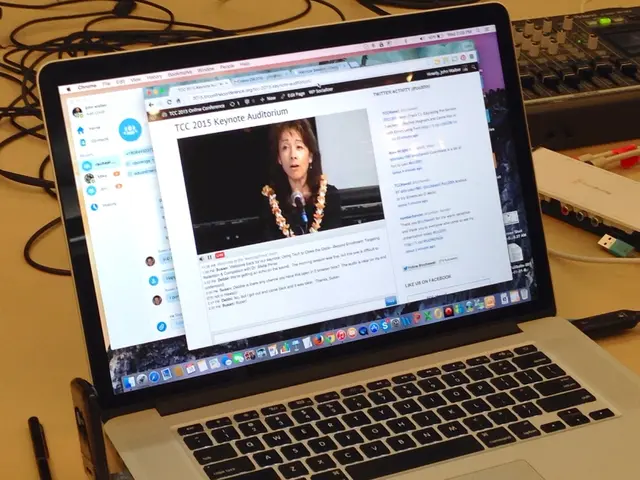Guide for Selling Audiobooks in 2025: Comprehensive Instructions for Novices
In the ever-growing world of audiobooks, authors are faced with a multitude of publishing platforms offering varying royalties and benefits. To make an informed decision, it's essential to compare these platforms based on key factors such as royalty rates, fee structures, revenue calculation, additional benefits, distribution reach, and format support.
Firstly, it's crucial to consider the royalty rates offered by each platform. Typical audiobook royalty rates range from about 40% to 65% of gross revenue for authors, depending on the platform and distribution method. For instance, platforms like AMPlify Audiobooks offer up to 65% of gross revenue to rights holders, significantly higher than conventional distributors that may offer around 17%-20% of gross or 25%-40% of net revenue.
Secondly, examine the fee structures of each platform. Some may charge upfront setup fees or maintenance fees, which can affect your net royalties. Others may have hidden costs or take a significant portion of your sales revenue as fees beyond the royalty rate. For example, AMPlify charges a one-time setup fee but no hidden costs, whereas some conventional platforms may deduct 83%-100% of your sales revenue via fees after the stated royalty percentage.
When comparing platforms, also consider the revenue calculation basis - gross or net. Gross revenue royalties mean you get paid from total sales before costs, while net revenue royalties mean your share comes after expenses, such as fees and distribution costs, are deducted. Platforms like AMPlify pay royalties on gross revenue, while many others pay on net revenue, reducing your actual earnings.
Additional benefits offered by platforms can also impact their value. These may include the ability to set your own price or run promotions, access to customer data for better marketing and fan engagement, and more frequent payouts to improve cash flow.
Distribution reach and format support are other critical factors to consider. Each platform's distribution channels and formats supported can significantly impact sales volumes. For instance, ACX distributes primarily through Audible/Amazon and iTunes, while Findaway Voices distributes widely to many audiobook retailers.
Here's a summary table comparing key royalty characteristics of several popular platforms: Findaway Voices, Author's Republic, ACX, Kobo Writing Life, Google Play Books, and AMPlify Audiobooks.
By systematically analysing these points across your target platforms, you can make an informed decision about which audiobook publisher maximises your royalties and fits your marketing goals. Remember, it's essential to read user testimonials, contract fine print, and regularly review the latest information to make the best choice for your audiobook.
As you embark on your audiobook publishing journey, also consider creating an immersive, hands-free experience for your audience by using a polished script, recording in a quiet space, and editing with software. Sharing the first chapter of the audiobook for free can hook the audience and build interest. Good luck, and happy publishing!
- To boost the reach of your ebooks, you might want to explore distribution options that support multiple formats and marketplaces, such as Findaway Voices and Kobo Writing Life.
- By utilizing data-and-cloud-computing technology, you can gain access to detailed customer analytics, helping with marketing efforts and audience engagement strategies on social media platforms.
- If you're looking for a platform that pays 65% of gross revenue to rights holders, consider AMPlify Audiobooks, which stands out among others with higher royalty rates and no hidden fees.
- To better engage with your audience on mobile devices, make sure the publishing platform you choose supports mobile-friendly formats for easy listener access.
- To ensure a seamless publishing process, invest in quality technology such as recording equipment and editing software for creating a polished audiobook script.








